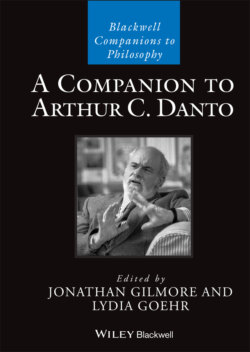Читать книгу A Companion to Arthur C. Danto - Группа авторов - Страница 48
2 The Distinctive Character of First-Person Knowledge Owes to Agency
ОглавлениеAkeel Bilgrami aims to capture and fortify the Cartesian insight that our knowledge of our own minds is privileged in a way that our knowledge of the world is not. He summarizes the Cartesian insight in terms of two phenomena: authority and transparency. Our self-knowledge is authoritative because we cannot be in error when we self-ascribe psychological attitudes; our self-knowledge is transparent because we cannot be ignorant of our psychological attitudes either. Bilgrami argues that we cannot explain these features of self-knowledge in purely causal terms by positing such things as special perceptual abilities or a special functional organization, because any such causal condition for self-knowledge can in principle fail, whereas there is no room for epistemic failure from the first-person point of view – there is no room for either error or ignorance.
Some philosophers might infer that we do not really enjoy the sort of epistemic privilege that Bilgrami aims to explain; and they might seek support for their conclusion in such enterprises as psychoanalytic theory and cognitive science, both of which posit psychological phenomena with respect to which we clearly do not enjoy such epistemic privilege. But Bilgrami draws a different inference: such privilege is to be explained not in the causal terms of psychological science but rather in normative terms. This requires him to give up the common assumption that the psychological attitudes are causal dispositions to behave and to adopt a conception of them as commitments in the normative sense that Isaac Levi exploits for the purposes of decision theory. To believe something in this normative sense is to hold something true, and to be committed to reasoning and acting in the light of that truth. To value something in this normative sense is to hold it to be worthy of pursuit, and to be committed to reasoning and acting in the light of that worth. (Bilgrami does not use the term “worth” but speaks instead of objective desirability.) What distinguishes commitments from causal dispositions is that the subjects who undertake them believe they ought to live up to them by reasoning and acting in accord with them. Yet they are not guaranteed to live up to their commitments, for they can fail to live up to them compatibly with still holding them so long as they can recognize their failures, and are prepared to take their failures as grounds for self-criticism. What subjects cannot do is embrace commitments in this normative sense while being mistaken about, or ignorant of, what they are thereby committed to. Bilgrami concludes that it is a condition on having commitments at all that our knowledge of them incorporates the kind of epistemic privilege that Descartes claimed for our knowledge of our own minds – it must be authoritative and transparent.
It follows from Bilgrami’s normative account of self-knowledge that subjects who enjoy privileged knowledge of their own minds are agents, for only agents can undertake commitments, and strive to live up to them, and criticize themselves for their failures to live up to them. The converse holds as well in his view: only reflective creatures who knowingly reason and act from a first-person point of view, in the light of their own commitments, qualify as agents.
Bilgrami makes no mention of the sort of phenomenological approach to explaining the privileged character of self-knowledge that most readers of Descartes think they find in his work, and which they see as leading him to posit a metaphysical dualism of mind and body. Such a phenomenological approach would construe epistemic privilege as a kind of privileged access that is afforded by consciousness. Bilgrami eschews all questions about how self-knowledge is afforded, and fastens exclusively on the normative point that self-knowledge is a condition on the kind of agency that is possessed by reflective subjects with a first-person point of view. His eschewal of the how question is a striking point of convergence with Danto’s claim that agents do not know, and moreover do not need to know, how they are able to perform basic actions. Yet, there is also an important difference. Danto seems to just plunk it down as a brute fact about agents, that they have no idea how they are able to perform basic actions. In contrast, Bilgrami situates his convergent point, that agents have no idea how they know their own thoughts, in a systematic account that explains the distinctive nature of self-knowledge by putting it into perspicuous relation to the distinctive nature of what is self-known – which is thought, construed not as causal dispositions to behave, but rather as irreducibly normative commitments.
